Discover Coachcast
Coachcast

Coachcast
Author: England Football Learning
Subscribed: 87Played: 2,810Subscribe
Share
© England Football Learning
Description
'Coachcast’ by England Football Learning, is a coaching podcast designed to give you expert insight, session ideas and a platform to discuss your coaching questions and challenges.
Have you been listening to Coachcast and tried out any of our coaching tips? We'd love to hear what you tried and how it went - as well as what you thought of the podcast!
Email: Coachcast@thefa.com or leave us a voice message on our Anchor page https://anchor.fm/coachcast-thefa
Have you been listening to Coachcast and tried out any of our coaching tips? We'd love to hear what you tried and how it went - as well as what you thought of the podcast!
Email: Coachcast@thefa.com or leave us a voice message on our Anchor page https://anchor.fm/coachcast-thefa
103 Episodes
Reverse
Every player likes to win. But matchday success isn’t just about the final score. Matt Jones returns to Coachcast in this episode to share his formula for matchday success, regardless of the outcome. We dive deep into what sort of matchday environment we’re aiming for and how coaches can make it happen. We also explore what great matchday behaviour looks like and how coaches can set the tone. Matt brings a grounded, practical view of how coaches can prepare players, manage emotions, and build an environment that supports development over pressure. He also shares some memorable stories from his experiences across the game that highlight the powerful impact of coach behaviours. If you want to create matchday experiences that help your players grow, whilst performing at their best, this episode will give you the tools to make it happen. In this episode, we cover: how to approach matchday across different age groups preparing players so they feel confident but not overwhelmedwhat a great matchday environment looks likeMatt’s formula for defining successsome coaching stories from Matt you’ll want to sharehow self-awareness improves matchday coachinghow you can positively shape parent and spectator behaviourbalancing challenge with funthe “3 T’s” of effective matchday interventionsone thing coaches should stop doing and one they should startand more…Transcript on England Football community - (https://bit.ly/4a1cDoG)—————Do you have any coaching questions you’d like answers to? Or perhaps you’re facing a coaching challenge that you’d like help with? Simply head over to our England Football Community forum (https://community.thefa.com/coaching/f/youth-club-football-forum) and post them there. Or leave them in the comments below. We can then put them to our guests in future episodes to get their advice!Already listened to this episode or the previous seasons of Coachcast? We’d love to hear from you! Pass on your feedback by contacting us via Coachcast@thefa.com.LEARN MOREEngland Football Learning - https://learn.englandfootball.com/England Football Community - https://community.thefa.com/England Football Learning on YouTube - https://www.youtube.com/channel/UCisPO86aEIhWRTnTS1vrSVwEngland Football Learning X/Twitter - https://twitter.com/EnglandLearningEmail - Coachcast@thefa.comLISTENSpotify - https://open.spotify.com/show/4sA9fHoldaH1x5Wn3vdmsBApple Podcasts - https://podcasts.apple.com/gb/podcast/coachcast/id159180480YouTube - https://www.youtube.com/@EnglandFootballLearningEditing and show notes by Claricast.(https://www.clarioncast.com/)
Reflection is one of the most powerful tools a coach has – yet it’s often the first thing we let slip when the season gets busy. That’s why in this episode, we take a mid-season reset to talk about reflection, and how it can transform your coaching. In this episode, Women’s pathway lead coach developer, Sam Griffiths, returns to Coachcast to explore how coaches can reflect more effectively during the season. Sam shares why reflection is essential, what to focus on, and how to build reflective habits even when you’re short on time. If you ever feel like a never-ending list of things to do as a coach is preventing you from improving, this conversation will help you turn reflection into positive action. Covered in this episode: why reflection matters for coacheswhat to reflect on throughout the seasonhow to reflect when time is limitedmatchday vs training reflectionsthe one question every coach should ask after each sessionhow to support other coaches with reflectionsmaking half-time reflections effective in limited timeturning reflections into actionable improvementsmanaging the mental and logistical load of coachingand more…Transcript on England Football community - (https://bit.ly/49o36Xx)—————Do you have any coaching questions you’d like answers to? Or perhaps you’re facing a coaching challenge that you’d like help with? Simply head over to our England Football Community forum (https://community.thefa.com/coaching/f/youth-club-football-forum) and post them there. Or leave them in the comments below. We can then put them to our guests in future episodes to get their advice!Already listened to this episode or the previous seasons of Coachcast? We’d love to hear from you! Pass on your feedback by contacting us via Coachcast@thefa.com.LEARN MOREEngland Football Learning - https://learn.englandfootball.com/England Football Community - https://community.thefa.com/England Football Learning on YouTube - https://www.youtube.com/channel/UCisPO86aEIhWRTnTS1vrSVwEngland Football Learning X/Twitter - https://twitter.com/EnglandLearningEmail - Coachcast@thefa.comLISTENSpotify - https://open.spotify.com/show/4sA9fHoldaH1x5Wn3vdmsBApple Podcasts - https://podcasts.apple.com/gb/podcast/coachcast/id159180480YouTube - https://www.youtube.com/@EnglandFootballLearningEditing and show notes by Claricast.(https://www.clarioncast.com/)
Helping your players develop the ten core skills is an essential part of coaching football. We see them all when we observe matches, but it’s important to give each of them space in your sessions before matchday.In this episode, Emily Senior returns to Coachcast to unpack exactly how to implement all ten core skills into your practices.You’ll hear how to design practices that challenge your players, how to coach multiple core skills simultaneously when time is tight, and how to bridge the gap between training and matchday execution.If you want to maximise your players’ development of the core skills and design practices that move their game forward, while keeping them engaged, this episode is for you.Covered in this episode:what the ten core skills arewhich skills develop naturally and which need more focustop tips for teaching and reinforcing core skillswhen coaches should start focusing on core skillssigns that a player is struggling and how to support themsession ideas to develop multiple skills at oncetransferring the core skills to matchdayhow to challenge players to apply core skills creatively and make decisions in the momentand more...Transcript on England Football community - (https://bit.ly/4p4s6bV)—————Do you have any coaching questions you’d like answers to? Or perhaps you’re facing a coaching challenge that you’d like help with? Simply head over to our England Football Community forum (https://community.thefa.com/coaching/f/youth-club-football-forum) and post them there. Or leave them in the comments below. We can then put them to our guests in future episodes to get their advice!Already listened to this episode or the previous seasons of Coachcast? We’d love to hear from you! Pass on your feedback by contacting us via Coachcast@thefa.com.LEARN MOREEngland Football Learning - https://learn.englandfootball.com/England Football Community - https://community.thefa.com/England Football Learning on YouTube - https://www.youtube.com/channel/UCisPO86aEIhWRTnTS1vrSVwEngland Football Learning X/Twitter - https://twitter.com/EnglandLearningEmail - Coachcast@thefa.comLISTENSpotify - https://open.spotify.com/show/4sA9fHoldaH1x5Wn3vdmsBApple Podcasts - https://podcasts.apple.com/gb/podcast/coachcast/id159180480YouTube - https://www.youtube.com/@EnglandFootballLearningEditing and show notes by Claricast.(https://www.clarioncast.com/)
Winter weather can throw even the best-planned training sessions off track, but it doesn’t need to mean a wasted hour.In this episode, Vinny Halsall returns to share his advice on keeping outdoor sessions effective, safe, and enjoyable when conditions get cold and wet.We talk about the realities of coaching through cold and rain and navigating the unpredictable nature of winter weather. With the small adjustments to session planning and communication that Vinny shares, coaches can still ensure player outcomes are still met.In the event of severe weather conditions, sessions may have to be cancelled, and we also discuss how to assess risk and navigate those cancellations.If you want to maximise your players’ development and keep your winter sessions fun and safe, this episode gives you everything you need to coach confidently outdoors in winter. Covered in this episode:the impact that winter weather can have on coaching outdoorshow to rescue a struggling session in bad conditionsadapting your planning for unpredictable weatherweather-tracking and risk-management advicehow to communicate cancellations with parents and playerscold-weather warm-up ideasmaximising ball-rolling time in poor weather conditionsindoor alternatives for those with the facilities availablethe biggest winter training mistake coaches makeand more...Transcript on England Football community - (https://bit.ly/48BB4r4)—————Do you have any coaching questions you’d like answers to? Or perhaps you’re facing a coaching challenge that you’d like help with? Simply head over to our England Football Community forum (https://community.thefa.com/coaching/f/youth-club-football-forum) and post them there. Or leave them in the comments below. We can then put them to our guests in future episodes to get their advice!Already listened to this episode or the previous seasons of Coachcast? We’d love to hear from you! Pass on your feedback by contacting us via Coachcast@thefa.com.LEARN MOREEngland Football Learning - https://learn.englandfootball.com/England Football Community - https://community.thefa.com/England Football Learning on YouTube - https://www.youtube.com/channel/UCisPO86aEIhWRTnTS1vrSVwEngland Football Learning X/Twitter - https://twitter.com/EnglandLearningEmail - Coachcast@thefa.comLISTENSpotify - https://open.spotify.com/show/4sA9fHoldaH1x5Wn3vdmsBApple Podcasts - https://podcasts.apple.com/gb/podcast/coachcast/id159180480YouTube - https://www.youtube.com/@EnglandFootballLearningEditing and show notes by Claricast.(https://www.clarioncast.com/)
With the colder months upon us, outdoor training isn’t always possible. But with limited space, indoor training can feel like a challenge.In this episode, Marc Forrest joins us to explore how that challenge can be turned into opportunity. We dive into how coaches can make the most of indoor sessions and discover the huge benefits of futsal for both player and coach development.Marc has worked across a range of ages and formats and now co-delivers The UEFA Futsal B Diploma for The FA. He shares practical tips for adapting outdoor practices to the indoor environment, keeping players engaged in tighter spaces (without getting overwhelmed), and using futsal to develop skills that translate directly to football.If you want to maximise your players’ development through the winter months, this episode is for you.Covered in this episode:how to adapt your training when moving indoorsmanaging space and player focus effectively indoorswhat is Futsal and how can it benefit your playerspreparing players and parents for indoor sessionskey differences between indoor and outdoor practice designhow to avoid overwhelm when training in a smaller and noisier environmentthe biggest mistake coaches make during indoor trainingand more...Transcript on England Football community - (https://bit.ly/3LYeLUM)—————Do you have any coaching questions you’d like answers to? Or perhaps you’re facing a coaching challenge that you’d like help with? Simply head over to our England Football Community forum (https://community.thefa.com/coaching/f/youth-club-football-forum) and post them there. Or leave them in the comments below. We can then put them to our guests in future episodes to get their advice!Already listened to this episode or the previous seasons of Coachcast? We’d love to hear from you! Pass on your feedback by contacting us via Coachcast@thefa.com.LEARN MOREEngland Football Learning - https://learn.englandfootball.com/England Football Community - https://community.thefa.com/England Football Learning on YouTube - https://www.youtube.com/channel/UCisPO86aEIhWRTnTS1vrSVwEngland Football Learning X/Twitter - https://twitter.com/EnglandLearningEmail - Coachcast@thefa.comLISTENSpotify - https://open.spotify.com/show/4sA9fHoldaH1x5Wn3vdmsBApple Podcasts - https://podcasts.apple.com/gb/podcast/coachcast/id159180480YouTube - https://www.youtube.com/@EnglandFootballLearningEditing and show notes by Claricast.(https://www.clarioncast.com/)
In our first-ever community questions episode, we’re answering your coaching questions.We’ve gathered coaching questions from across our community and social media channels, and Lee Brown returns to Coachcast to answer them directly.We’ve squeezed in as many of your questions as possible, covering several aspects of coaching, from training to game formats to matchday.With practical advice drawn from extensive coaching experience, Lee helps you approach common challenges with confidence.And if your question didn’t get answered in this episode, send them in to us either on the community, on our socials or drop your questions in the comments section, as we’ll be answering more in the next community questions episode.Covered in this episode:how to deal with imposter syndrome as a coachquickly creating the right environment in trainingkeeping young players engaged and focusedtips for supporting neurodivergent playersimproving sprinting, finishing, and decision-makinggiving players the confidence to try goalkeepingthe best way of teaching the offside rule to young playersgiving feedback in the heat of the momentkeeping subs engaged on matchdayhandling parents and carers coaching from the sidelinesand much more…Transcript on England Football community - (https://bit.ly/490Bjh9)—————Do you have any coaching questions you’d like answers to? Or perhaps you’re facing a coaching challenge that you’d like help with? Simply head over to our England Football Community forum (https://community.thefa.com/coaching/f/youth-club-football-forum) and post them there. Or leave them in the comments below. We can then put them to our guests in future episodes to get their advice!Already listened to this episode or the previous seasons of Coachcast? We’d love to hear from you! Pass on your feedback by contacting us via Coachcast@thefa.com.MENTIONED IN THIS EPISODESkill Square: Effective dribbling drill - https://www.tiktok.com/@englandfootballlearning/video/7537702086880939286LEARN MOREEngland Football Learning - https://learn.englandfootball.com/England Football Community - https://community.thefa.com/England Football Learning on YouTube -https://www.youtube.com/channel/UCisPO86aEIhWRTnTS1vrSVwEngland Football Learning X/Twitter - https://twitter.com/EnglandLearningEmail - Coachcast@thefa.comLISTENSpotify - https://open.spotify.com/show/4sA9fHoldaH1x5Wn3vdmsBApple Podcasts - https://podcasts.apple.com/gb/podcast/coachcast/id159180480YouTube - https://www.youtube.com/@EnglandFootballLearningEditing and show notes by Claricast.(https://www.clarioncast.com/)
Communicating well with parents is one of the most important parts of grassroots coaching, and it can be one of the most challenging. But with the right approach, it can transform the experience for everyone involved.In this episode, FA coach developer Mark Leigh returns to Coachcast to share practical communication tips to help coaches build positive relationships with parents and handle tricky situations calmly and confidently.We explore how coaches can plan their communication effectively, adapt their style for different audiences, and avoid common communication mistakes when emotions are running high.If you’re aiming to create a more collaborative environment around your team, and prevent mixed messages for players, this episode will give you the tools to manage relationships in a positive way.Covered in this episode:what effective communication looks like for coacheshow to plan what you say before a sessionthe ‘all, some, few’ approach to communicating with playershow to get relationships with parents right from the startdealing with parents who coach from the sidelineswhen to address issues in the moment and when not totips for de-escalating tense situationsthe most common communication mistake coaches makeand more...Transcript on England Football community - (https://bit.ly/47pSlmd)—————Do you have any coaching questions you’d like answers to? Or perhaps you’re facing a coaching challenge that you’d like help with? Simply head over to our England Football Community forum (https://community.thefa.com/coaching/f/youth-club-football-forum) and post them there. Or leave them in the comments below. We can then put them to our guests in future episodes to get their advice!Already listened to this episode or the previous seasons of Coachcast? We’d love to hear from you! Pass on your feedback by contacting us via Coachcast@thefa.com.LEARN MOREWebinar | How might I get the support of parents and carers in my sessions and on matchday? - https://youtu.be/yUATWyaPhm0?si=sVFcDy3hho7pXk-SEngland Football Learning - https://learn.englandfootball.com/England Football Community - https://community.thefa.com/England Football Learning on YouTube -https://www.youtube.com/channel/UCisPO86aEIhWRTnTS1vrSVwEngland Football Learning X/Twitter - https://twitter.com/EnglandLearningEmail - Coachcast@thefa.comLISTENSpotify - https://open.spotify.com/show/4sA9fHoldaH1x5Wn3vdmsBApple Podcasts - https://podcasts.apple.com/gb/podcast/coachcast/id159180480YouTube - https://www.youtube.com/@EnglandFootballLearningEditing and show notes by Claricast.(https://www.clarioncast.com/)
From the nerves and pressure of the run-up to matchday to the highs and lows of winning or losing, emotions are part of football.For young players in particular, these emotions can feel overwhelming. They can affect their performance and their enjoyment of the game, and in turn, the rest of the team. That’s why coaches have a huge role to play in helping them manage these emotions.In this episode, The FA’s Loz Lok returns to Coachcast to share practical advice for helping players manage their emotions and behaviour.Whether it’s handling nerves, bouncing back from a loss, or celebrating a win the right way, this episode will give you actionable steps to help players develop and keep coming back for more – even in challenging times.Covered in this episode:the common behaviours in young players that may need managinghow to reduce emotional stress in your environmentspotting individual triggers and adapting for players’ needsmanaging emotionssmall tweaks that make a big difference in sessionsa simple trick for keeping player attention during pre-session talkshelping players manage emotions on the pitch on matchdaypost-match behaviour tipshow to maintain a supportive environmentand more…Transcript on England Football community - (https://bit.ly/3L5HWF8)—————Do you have any coaching questions you’d like answers to? Or perhaps you’re facing a coaching challenge that you’d like help with? Simply head over to our England Football Community forum (https://community.thefa.com/coaching/f/youth-club-football-forum) and post them there. Or leave them in the comments below. We can then put them to our guests in future episodes to get their advice!Already listened to this episode or the previous seasons of Coachcast? We’d love to hear from you! Pass on your feedback by contacting us via Coachcast@thefa.com.LEARN MOREEngland Football Learning - https://learn.englandfootball.com/England Football Community - https://community.thefa.com/England Football Learning on YouTube -https://www.youtube.com/channel/UCisPO86aEIhWRTnTS1vrSVwEngland Football Learning X/Twitter - https://twitter.com/EnglandLearningEmail - Coachcast@thefa.comLISTENSpotify - https://open.spotify.com/show/4sA9fHoldaH1x5Wn3vdmsBApple Podcasts - https://podcasts.apple.com/gb/podcast/coachcast/id159180480YouTube - https://www.youtube.com/@EnglandFootballLearningEditing and show notes by Claricast.(https://www.clarioncast.com/)
Matchday can be one of the most stressful times for players and coaches. From pre-game warmups to full-time talks, emotions are high and it can feel overwhelming.That’s why, in this episode, Amanda Greenslade returns to Coachcast to share her advice on how experienced coaches can manage matchday with confidence and get the most out of the day, whatever the outcome.Amanda breaks down the key moments of matchday and how to handle them in ways that reduce stress and keep the focus on player development without sacrificing enjoyment.If you’re looking for ways to keep matchday a positive experience, this episode is packed with insights you can put into action right away.In this episode, we cover:how to prepare for matchday and what never to do before a gamehow ages and stages affect matchday prepmanaging your response as a competitive coachtop tips for touchline communicationhow to deliver effective half-time and full-time talksworking with support staff and parents on matchdaytips for making decisions you won’t regret during the gamebalancing development with enjoymentmanaging substitutions and making every player feel like a game changerthe one thing every grassroots coach should do before a gameand more...Transcript on England Football community - (https://bit.ly/48MUfPZ)—————Do you have any coaching questions you’d like answers to? Or perhaps you’re facing a coaching challenge that you’d like help with? Simply head over to our England Football Community forum (https://community.thefa.com/coaching/f/youth-club-football-forum) and post them there. Or leave them in the comments below. We can then put them to our guests in future episodes to get their advice!Already listened to this episode or the previous seasons of Coachcast? We’d love to hear from you! Pass on your feedback by contacting us via Coachcast@thefa.com.LEARN MOREEngland Football Learning - https://learn.englandfootball.com/England Football Community - https://community.thefa.com/England Football Learning on YouTube - https://www.youtube.com/channel/UCisPO86aEIhWRTnTS1vrSVwEngland Football Learning X/Twitter - https://twitter.com/EnglandLearningEmail - Coachcast@thefa.comLISTENSpotify - https://open.spotify.com/show/4sA9fHoldaH1x5Wn3vdmsBApple Podcasts - https://podcasts.apple.com/gb/podcast/coachcast/id159180480YouTube - https://www.youtube.com/@EnglandFootballLearningEditing and show notes by Claricast.(https://www.clarioncast.com/)
What separates a good training session from a great one?In part two of our ultimate guide to training with Katie Sorenson, we dive into the details that make the difference for coaches.In this episode, we cover a range of essential training topics from recognising when players are engaged, to adapting for different needs, to making interventions that move the session forward rather than disrupt it. This episode is packed with practical guidance you can use in your next session.If you want your players to feel valued and buzzing to come back for more, this is a must-listen. And if you haven’t already, check out part one so you get the complete guide to training.Covered in this episode:what to look for when observing a session and the observation mistakes you might be makinghow to recognise how well sessions are going in the momentaccounting for different abilities and needs in a sessionthe pros and cons of different coaching styleswhy body language matters and how to use it effectivelymaking interventions without disrupting the flowhow to avoid wasted time in traininghow flexible you should be with your planand more…Transcript on England Football community - (https://bit.ly/4nujNG1)—————Do you have any coaching questions you’d like answers to? Or perhaps you’re facing a coaching challenge that you’d like help with? Simply head over to our England Football Community forum (https://community.thefa.com/coaching/f/youth-club-football-forum) and post them there. Or leave them in the comments below. We can then put them to our guests in future episodes to get their advice!Already listened to this episode or the previous seasons of Coachcast? We’d love to hear from you! Pass on your feedback by contacting us via Coachcast@thefa.com.LEARN MOREEngland Football Learning - https://learn.englandfootball.com/England Football Community - https://community.thefa.com/England Football Learning on YouTube -https://www.youtube.com/channel/UCisPO86aEIhWRTnTS1vrSVwEngland Football Learning X/Twitter - https://twitter.com/EnglandLearningEmail - Coachcast@thefa.comLISTENSpotify - https://open.spotify.com/show/4sA9fHoldaH1x5Wn3vdmsBApple Podcasts - https://podcasts.apple.com/gb/podcast/coachcast/id159180480YouTube - https://www.youtube.com/@EnglandFootballLearningEditing and show notes by Claricast.(https://www.clarioncast.com/)
Do you want every training session to be the highlight of your players’ week?This episode is your blueprint.In part one of this ultimate guide to training, Katie Sorenson shares her proven strategies for planning and delivering sessions that players love, while helping them achieve their learning objectives.From designing practices players respond to, to linking your training seamlessly to match day, you’ll learn how to create an environment where players feel valued and excited to come back next week.You’ll find tips here on how to plan effectively, even if you’re short on time or the turnout on the day isn’t as expected.Covered in this episode:the most important thing to remember when planning a sessioncreating flexible training plans that work no matter how many players show upthe ‘menu’ strategy for coaches with minimal timethe biggest mistake coaches make when planningpractice design principles and how to get them rightdesigning sessions players can’t wait to be part ofmaking players feel safe to make mistakes and learn from themlinking training directly to matchday performancewhen and how to adapt your plan mid-sessionand more...If you haven’t already, subscribe so you don’t miss part two.Transcript on England Football community - (https://bit.ly/3JZwfyS)—————Do you have any coaching questions you’d like answers to? Or perhaps you’re facing a coaching challenge that you’d like help with? Simply head over to our England Football Community forum (https://community.thefa.com/coaching/f/youth-club-football-forum) and post them there. Or leave them in the comments below. We can then put them to our guests in future episodes to get their advice!Already listened to this episode or the previous seasons of Coachcast? We’d love to hear from you! Pass on your feedback by contacting us via Coachcast@thefa.com.LEARN MOREEngland Football Learning - https://learn.englandfootball.com/England Football Community - https://community.thefa.com/England Football Learning on YouTube -https://www.youtube.com/channel/UCisPO86aEIhWRTnTS1vrSVwEngland Football Learning X/Twitter - https://twitter.com/EnglandLearningEmail - Coachcast@thefa.comLISTENSpotify - https://open.spotify.com/show/4sA9fHoldaH1x5Wn3vdmsBApple Podcasts - https://podcasts.apple.com/gb/podcast/coachcast/id159180480YouTube - https://www.youtube.com/@EnglandFootballLearningEditing and show notes by Claricast.(https://www.clarioncast.com/)
Tournaments are a great way for players to bond and prepare for the season ahead, but they can also present challenges.In this episode, Emily Senior, an FA regional coach developer, joins us to explore how coaches can make the most out of tournaments.Pre-season tournaments offer a pressure-free environment for building physical and social skills, and Emily shares practical ideas to help coaches navigate tournament days with more confidence and less stress.From managing equal game time and supporting nervous players, to using tournaments as a space for development while keeping them fun, Emily offers guidance for both new and experienced coaches.Covered in this episode:top tips for pre-season preparationthe top three benefits of pre-season tournamentswhat outcomes to focus on beyond just resultscommon mistakes coaches make during tournaments and how to avoid themhow to communicate with players to keep things positiveideas to help players build confidence and cope with pressurehow to structure a tournament for successand much more…Transcript on England Football community - (https://bit.ly/4fAfHtf)—————Do you have any coaching questions you’d like answers to? Or perhaps you’re facing a coaching challenge that you’d like help with? Simply head over to our England Football Community forum (https://community.thefa.com/coaching/f/youth-club-football-forum) and post them there. Or leave them in the comments below. We can then put them to our guests in future episodes to get their advice!Already listened to this episode or the previous seasons of Coachcast? We’d love to hear from you! Pass on your feedback by contacting us via Coachcast@thefa.com.LEARN MOREEngland Football Learning - https://learn.englandfootball.com/England Football Community - https://community.thefa.com/England Football Learning on YouTube -https://www.youtube.com/channel/UCisPO86aEIhWRTnTS1vrSVwEngland Football Learning X/Twitter - https://twitter.com/EnglandLearningEmail - Coachcast@thefa.comLISTENSpotify - https://open.spotify.com/show/4sA9fHoldaH1x5Wn3vdmsBApple Podcasts - https://podcasts.apple.com/gb/podcast/coachcast/id159180480YouTube - https://www.youtube.com/@EnglandFootballLearningEditing and show notes by Claricast.(https://www.clarioncast.com/)
Getting back into training after the summer holidays can be a challenge for players (especially the younger players). Players may be out of practice, their fitness levels can vary, and their focus might not be where it was at the end of last season.Coaches often face the pressure of trying to rebuild momentum and reconnect with players all while planning engaging sessions.That’s why, in this episode, Lee Brown returns to Coachcast to share his insights into how coaches can ease players back into training and plan for the season ahead.Lee shares practical tips for coaches preparing for pre-season so you can start reintroducing movement, building back fitness while keeping sessions fun and avoid the most common pitfalls coaches face during this time.If you're thinking ahead to your first session or planning out a 6-week block, this episode will help you make a strong start to the season.In this episode, we cover:what a good pre-season plan should look likehow to reintroduce movement and activity after a break, while keeping players engagedthe biggest challenges coaches face when players returnhow to train fundamental, locomotive, and football-specific movements togetherthe role of other sports in your pre-season planhow to mentally prepare players for returning to trainingtips for building out a six-week planTranscript on England Football community - (https://bit.ly/4lezEag)—————Do you have any coaching questions you’d like answers to? Or perhaps you’re facing a coaching challenge that you’d like help with? Simply head over to our England Football Community forum (https://community.thefa.com/coaching/f/youth-club-football-forum) and post them there. Or leave them in the comments below. We can then put them to our guests in future episodes to get their advice!Already listened to this episode or the previous seasons of Coachcast? We’d love to hear from you! Pass on your feedback by contacting us via Coachcast@thefa.com.LEARN MOREEngland Football Learning - https://learn.englandfootball.com/England Football Community - https://community.thefa.com/England Football Learning on YouTube -https://www.youtube.com/channel/UCisPO86aEIhWRTnTS1vrSVwEngland Football Learning X/Twitter - https://twitter.com/EnglandLearningEmail - Coachcast@thefa.comLISTENSpotify - https://open.spotify.com/show/4sA9fHoldaH1x5Wn3vdmsBApple Podcasts - https://podcasts.apple.com/gb/podcast/coachcast/id159180480YouTube - https://www.youtube.com/@EnglandFootballLearningEditing and show notes by Claricast.(https://www.clarioncast.com/)
Pre-season is a chance to welcome players back, set the tone for the season ahead, and create an environment where they can thrive. In this episode, Matt Jones returns to Coachcast to talk about how coaches can prepare for the new season. From what to do (and the pitfalls to avoid) in your first session back, to building strong relationships with players and parents, Matt shares expert advice for setting yourself up for success. If you’re looking to make this the best season yet, it all starts with the planning phase, and Matt shares his top strategies to help you get off on the right foot from day one. In this episode, we cover: what to prioritise in your first pre-season session and what to avoidhow to set the tone for a positive, welcoming environmenttips for building early relationships with players and parents advice for coaches working with their own children creating a more inclusive space for everyone and becoming a good allyhow to approach recruitment fairlysession ideas to re-engage playersand much more…Transcript on England Football community - (https://bit.ly/4lBR1ml)—————Do you have any coaching questions you’d like answers to? Or perhaps you’re facing a coaching challenge that you’d like help with? Simply head over to our England Football Community forum (https://community.thefa.com/coaching/f/youth-club-football-forum) and post them there. Or leave them in the comments below. We can then put them to our guests in future episodes to get their advice!Already listened to this episode or the previous seasons of Coachcast? We’d love to hear from you! Pass on your feedback by contacting us via Coachcast@thefa.com.LEARN MOREEngland Football Learning - https://learn.englandfootball.com/England Football Community - https://community.thefa.com/England Football Learning on YouTube -https://www.youtube.com/channel/UCisPO86aEIhWRTnTS1vrSVwEngland Football Learning X/Twitter - https://twitter.com/EnglandLearningEmail - Coachcast@thefa.comLISTENSpotify - https://open.spotify.com/show/4sA9fHoldaH1x5Wn3vdmsBApple Podcasts - https://podcasts.apple.com/gb/podcast/coachcast/id159180480YouTube - https://www.youtube.com/@EnglandFootballLearningEditing and show notes by Claricast.(https://www.clarioncast.com/)
Format changes are coming to the grassroots game for the 2026-2027 season, and in this episode, you’ll find out exactly what’s changing and why. John Folwell, head of grassroots coach development, returns to Coachcast to talk about supporting players as they move between formats – from 3v3 to 5v5 and beyond. He also shares a clear breakdown of the new changes coming next season, and how coaches can start preparing now to make the transition easy for coaches and players.From adapting to different pitch sizes to helping players understand new rules and roles, transitions between formats can have a big impact on development. This episode gives you the tools to support your players if they're transitioning to a larger format and get ahead of the upcoming format changes well before they come into effect.In this episode, we cover:what changes are coming to grassroots football next seasonwhen and how coaches should start preparing for next seasonthe impact of changing formats on players and how to support themhelping players adapt when moving up formatswhy smaller formats still have value, even for older playersrule changes like the removal of throw-ins for smaller games and what they mean in practicefirst steps you can take now to implement the changes smoothlyand more...Transcript on England Football community - (https://bit.ly/4lifvRx)—————Do you have any coaching questions you’d like answers to? Or perhaps you’re facing a coaching challenge that you’d like help with? Simply head over to our England Football Community forum (https://community.thefa.com/coaching/f/youth-club-football-forum) and post them there. Or leave them in the comments below. We can then put them to our guests in future episodes to get their advice!Already listened to this episode or the previous seasons of Coachcast? We’d love to hear from you! Pass on your feedback by contacting us via Coachcast@thefa.com.LEARN MOREFutureFit hubhttps://futurefit.englandfootball.com/futurefit/England Football Learning - https://learn.englandfootball.com/England Football Community - https://community.thefa.com/England Football Learning on YouTube -https://www.youtube.com/channel/UCisPO86aEIhWRTnTS1vrSVwEngland Football Learning X/Twitter - https://twitter.com/EnglandLearningEmail - Coachcast@thefa.comLISTENSpotify - https://open.spotify.com/show/4sA9fHoldaH1x5Wn3vdmsBApple Podcasts - https://podcasts.apple.com/gb/podcast/coachcast/id159180480YouTube - https://www.youtube.com/@EnglandFootballLearningEditing and show notes by Claricast.(https://www.clarioncast.com/)
The off-season is the perfect time to pause and prepare for the season ahead. And by taking time to self-reflect, you can ensure that you make next season count.That’s why, to kick off season six of Coachcast, FA regional coach developer, Chris Welburn, returns to share his advice for self-reflection.Self-reflection is a powerful tool that coaches can use to grow. It helps you spot what’s working, what needs to improve, and how to better support your players. By taking time to look back before you look ahead, you’ll move into the new season with more confidence and clarity.We dive into how to start with self-reflection, and the strategies you can use to evaluate last season, set meaningful goals, and ensure your practice design matches your intended outcomes.In this episode, we cover:why self-reflection is essential for coaches during the off-seasonhow to reflect on what really matterswhat to consider from last season when planning aheadthe three simple questions to guide your self-reflectiongoal-setting for next season using player feedbacktips for gathering honest and useful feedback from players and peersusing the ‘plan, do, review model’ to improve your coachinghow to match your session design with your intended outcomesand much more...Transcript on England Football community - (https://bit.ly/4n76z2D)—————Do you have any coaching questions you’d like answers to? Or perhaps you’re facing a coaching challenge that you’d like help with? Simply head over to our England Football Community forum (https://community.thefa.com/coaching/f/youth-club-football-forum) and post them there. Or leave them in the comments below. We can then put them to our guests in future episodes to get their advice!Already listened to this episode or the previous seasons of Coachcast? We’d love to hear from you! Pass on your feedback by contacting us via Coachcast@thefa.com.LEARN MOREEngland Football Learning - https://learn.englandfootball.com/England Football Community - https://community.thefa.com/England Football Learning on YouTube -https://www.youtube.com/channel/UCisPO86aEIhWRTnTS1vrSVwEngland Football Learning X/Twitter - https://twitter.com/EnglandLearningEmail - Coachcast@thefa.comLISTENSpotify - https://open.spotify.com/show/4sA9fHoldaH1x5Wn3vdmsBApple Podcasts - https://podcasts.apple.com/gb/podcast/coachcast/id159180480YouTube - https://www.youtube.com/@EnglandFootballLearningEditing and show notes by Claricast.(https://www.clarioncast.com/)
Creating a thriving learning environment means every player can enjoy the session while being challenged and supported. So, how can coaches make that happen?In the final episode of the season, The FA’s Vinny Halsall joins us to dive into what a thriving learning environment really looks like and how to create one.Vinny shares his approach to putting player needs at the heart of every session, and explains how to strike the balance between challenge, support, and emotional connection.Whether you’re coaching young players or adults, this episode is packed with bite-sized, easy-to-remember, actionable strategies that you can take to your next session.In this episode, we cover:what a thriving learning environment really looks likewhy the coach doesn’t always need to be front and centrehow your coaching style shapes the learning experience for playersbuilding environments that support decision-making and confidencetips for recognising and managing individual differences in your groupcoaching with kindness and understanding players' needscreating environments that adapt across different ages and stageshow to know if your environment is thrivingand much more...Transcript on England Football community - (https://bit.ly/44wiOPn)—————Do you have any coaching questions you’d like answers to? Or perhaps you’re facing a coaching challenge that you’d like help with? Simply head over to our England Football Community forum (https://community.thefa.com/coaching/f/youth-club-football-forum) and post them there. Or leave them in the comments below. We can then put them to our guests in future episodes to get their advice!Already listened to this episode or the previous seasons of Coachcast? We’d love to hear from you! Pass on your feedback by contacting us via Coachcast@thefa.com.LEARN MOREEngland Football Learning - https://learn.englandfootball.com/England Football Community - https://community.thefa.com/England Football Learning on YouTube -https://www.youtube.com/channel/UCisPO86aEIhWRTnTS1vrSVwEngland Football Learning X/Twitter - https://twitter.com/EnglandLearningEmail - Coachcast@thefa.comLISTENSpotify - https://open.spotify.com/show/4sA9fHoldaH1x5Wn3vdmsBApple Podcasts - https://podcasts.apple.com/gb/podcast/coachcast/id159180480YouTube - https://www.youtube.com/@EnglandFootballLearningEditing and show notes by Claricast.(https://www.clarioncast.com/)
Putting the person first can transform the way coaches connect with players. But what does a person-first approach actually look like in practice, and how can coaches make it part of their everyday sessions? In this episode, FA youth coach developer Suey Smith returns to Coachcast to explore the power of putting the person before the player. Suey shares practical ways coaches can build trust, confidence and motivation within players. Whether you’re working with a large or small group or coaching across different age groups, this episode will help you to meet the individual needs of every player. In this episode, we cover: what putting the person first means and why it matters how to start using a person-first approach in your coachingwhy understanding player motivations makes such a difference to their performancewhat kind of information you should try to learn about your playersthe role of body language in building trust and confidenceusing the person-first approach with large groups and across different age groupswhere safeguarding fits into a person-first approachhow to make a positive impression on players that will stick with them for a lifetimeand much more… Transcript on England Football community - (https://bit.ly/3Sc4WCl)—————Do you have any coaching questions you’d like answers to? Or perhaps you’re facing a coaching challenge that you’d like help with? Simply head over to our England Football Community forum (https://community.thefa.com/coaching/f/youth-club-football-forum) and post them there. Or leave them in the comments below. We can then put them to our guests in future episodes to get their advice!Already listened to this episode or the previous seasons of Coachcast? We’d love to hear from you! Pass on your feedback by contacting us via Coachcast@thefa.com.LEARN MOREEngland Football Learning - https://learn.englandfootball.com/England Football Community - https://community.thefa.com/England Football Learning on YouTube -https://www.youtube.com/channel/UCisPO86aEIhWRTnTS1vrSVwEngland Football Learning X/Twitter - https://twitter.com/EnglandLearningEmail - Coachcast@thefa.comLISTENSpotify - https://open.spotify.com/show/4sA9fHoldaH1x5Wn3vdmsBApple Podcasts - https://podcasts.apple.com/gb/podcast/coachcast/id159180480Editing and show notes by Claricast.(https://www.clarioncast.com/)
Good communication skills are essential to effectively coach players across all ages and stages. But what does good communication look like, and how can coaches better connect with their players? In this episode, The FA's Ryan Davies – who has changed roles since recording – returns to Coachcast to break down how to effectively communicate with players. Ryan works with teachers and coaches to support them deliver high quality PE, and also got the opportunity to be an England head coach. He has plenty of practical advice for coaches on how to adapt communication styles, build trust, and ensure messages resonate with players of all ages and abilities. In this episode, we cover: what good communication looks like and why it’s so important top tips for developing your communication skills different communication styles and when to use them how to ask for valuable feedback from your playerswhat your body language, tone, and volume are really saying to your playersmaintaining consistency in your communications between training and matchday ensuring you’re communicating for your players – not for the crowdsthe key role of listening in effective coachinghow to tailor communication for different ages and stagespractical tactics you can use to start improving your communication in your next sessionand much more… Transcript on England Football community - (https://bit.ly/42xlxW0)—————Do you have any coaching questions you’d like answers to? Or perhaps you’re facing a coaching challenge that you’d like help with? Simply head over to our England Football Community forum (https://community.thefa.com/coaching/f/youth-club-football-forum) and post them there. Or leave them in the comments below. We can then put them to our guests in future episodes to get their advice!Already listened to this episode or the previous seasons of Coachcast? We’d love to hear from you! Pass on your feedback by contacting us via Coachcast@thefa.com.LEARN MOREEngland Football Learning - https://learn.englandfootball.com/England Football Community - https://community.thefa.com/England Football Learning on YouTube -https://www.youtube.com/channel/UCisPO86aEIhWRTnTS1vrSVwEngland Football Learning X/Twitter - https://twitter.com/EnglandLearningEmail - Coachcast@thefa.comLISTENSpotify - https://open.spotify.com/show/4sA9fHoldaH1x5Wn3vdmsBApple Podcasts - https://podcasts.apple.com/gb/podcast/coachcast/id159180480Editing and show notes by Claricast.(https://www.clarioncast.com/)
Good relationships on and off the pitch can make all the difference in helping players improve. But what does a strong relationship look like? And how can coaches build them effectively?In this episode, FA regional coach developer Chris Welburn returns to Coachcast to share his insights into building relationships with players.Chris draws from his experience in different domains of the game to give us a better understanding of what a good relationship is and how to start building them.Chris keeps it practical, offering real-world strategies for building strong connections despite the limited time coaches may have with players. Whether it’s working with young players, players with additional needs or involving parents and carers, he shares actionable advice to help coaches create a positive environment where all players can excel.In this episode, we cover:why building good relationships with players is essentialthe three key traits of a strong player-coach relationshiphow to quickly build trust in the short space of time coaches have with players each weekthe difference between relationship-building in training vs matchdayhow to help players communicate better with each otherunderstanding players on and off the pitchthe skills coaches need to foster strong connectionshow to build relationships with parents, carers, and players with additional needsand much more…Transcript on England Football community - (https://bit.ly/4j56tFE)—————Do you have any coaching questions you’d like answers to? Or perhaps you’re facing a coaching challenge that you’d like help with? Simply head over to our England Football Community forum (https://community.thefa.com/coaching/f/youth-club-football-forum) and post them there. Or leave them in the comments below. We can then put them to our guests in future episodes to get their advice!Already listened to this episode or the previous seasons of Coachcast? We’d love to hear from you! Pass on your feedback by contacting us via Coachcast@thefa.com.LEARN MOREEngland Football Learning - https://learn.englandfootball.com/England Football Community - https://community.thefa.com/England Football Learning on YouTube -https://www.youtube.com/channel/UCisPO86aEIhWRTnTS1vrSVwEngland Football Learning X/Twitter - https://twitter.com/EnglandLearningEmail - Coachcast@thefa.comLISTENSpotify - https://open.spotify.com/show/4sA9fHoldaH1x5Wn3vdmsBApple Podcasts - https://podcasts.apple.com/gb/podcast/coachcast/id159180480Editing and show notes by Claricast.(https://www.clarioncast.com/)




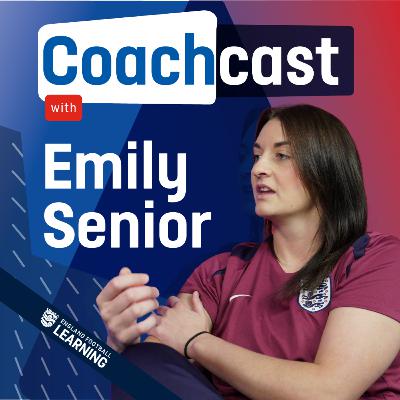

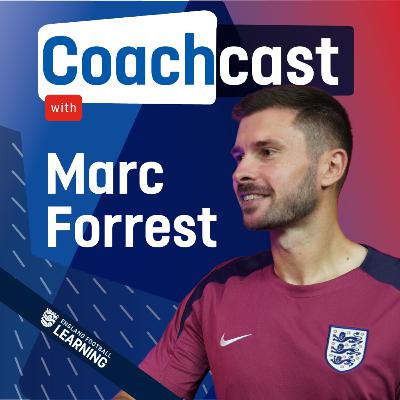

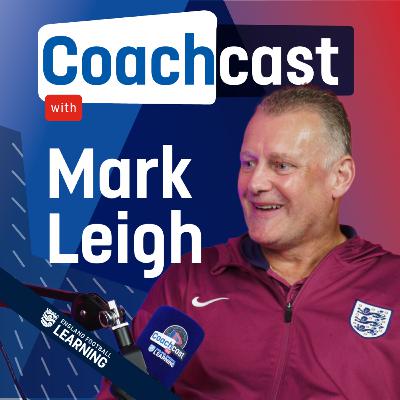

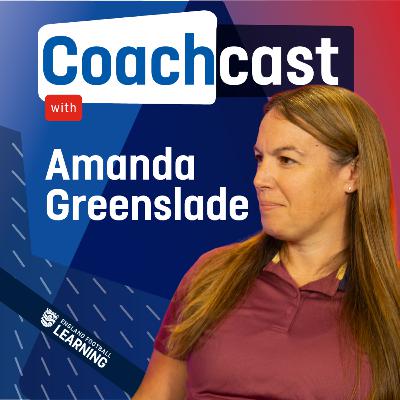
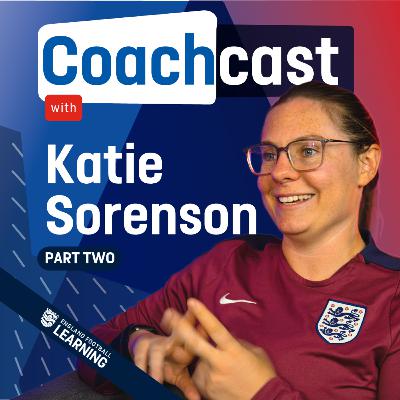
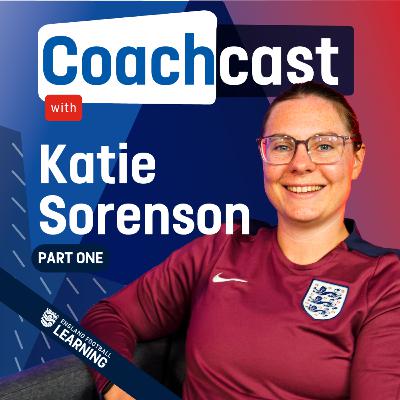

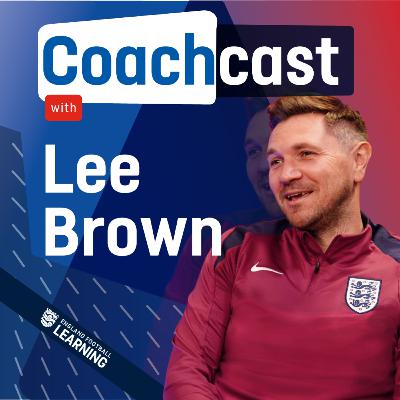
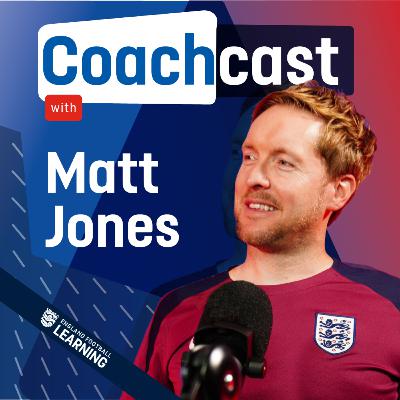
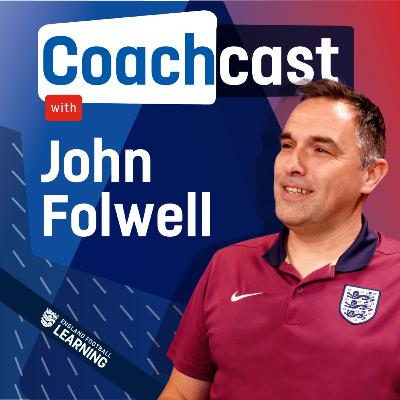
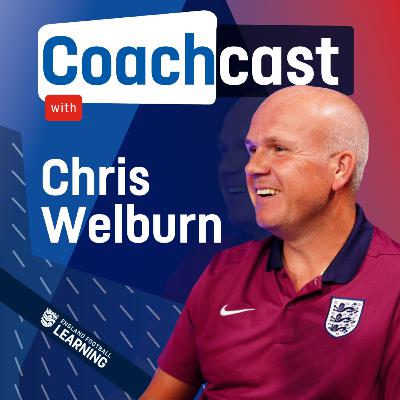


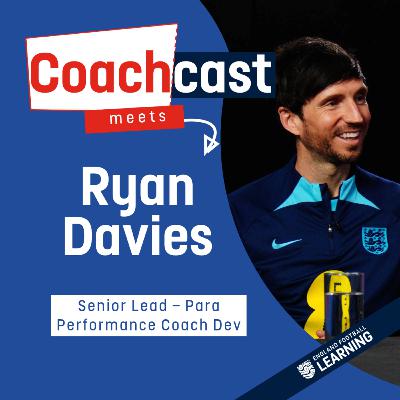




Planning sessions to achieve specific outcomes often requires tools that keep you engaged and focused, and the same applies to gaming where smooth performance enhances results. Using an https://nba2k20-apk.com/ like NBA 2K20 brings realistic graphics and exciting gameplay that keep you immersed, much like structured planning does in learning. Both approaches show how the right platform or method can elevate the overall experience.
Hello I want to have text of the podcast please. How can i get the text for every podcast??